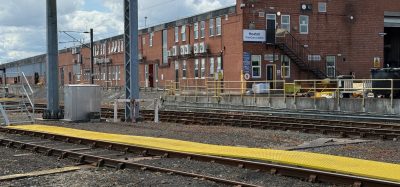Australasian Railway Association outlines two-year plan for rail freight
Posted: 25 June 2020 | Global Railway Review | No comments yet
The two-year strategic plan will see the ARA support the development of rail freight to create stronger connections between cities and regions.


The Australasian Railway Association (ARA) has launched its 2020-2022 strategic plan for rail freight to support an increased modal share for the industry as the nation’s freight task grows. The plan supports regulatory reform to support rail freight productivity and ensure a coordinated and nationally consistent approach to freight policy.
Chief Executive Officer of ARA, Caroline Wilkie, said that rail would need to play a stronger role in meeting Australia’s freight needs: “Our national freight task is expected to rise 35 per cent by 2040 and rail will play a critical part in meeting this demand. A strong and resilient freight network makes the best use of all available modes of transport and there is certainly a case for greater use of rail in the future. Increasing the use of rail freight will reduce road congestion while building the capacity of the network safely and efficiently. A truly national approach will be essential to make sure we get the most from rail investment and create stronger connections between our cities and regions.”
The ARA will continue to promote the importance of an interoperable national rail freight network through the adoption of new technology and support for the Australian Rail Track Corporation’s (ARTC) efforts to implement its Advanced Train Management System on the interstate network.
Caroline said that the ARA would now advance a dedicated research programme, with three research projects to be launched in the 2020-21 financial year. The programme will inform the strategy’s implementation and identify opportunities for government and industry to facilitate greater modal share for rail freight and drive productivity improvements across the sector. Dedicated research projects will focus on the impediments to rail freight modal shift, rail freight productivity and rail freight infrastructure investment.
Related topics
Related organisations
Australasian Railway Association (ARA), Australian Rail Track Corporation (ARTC)







